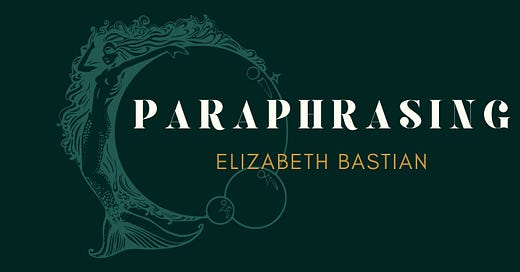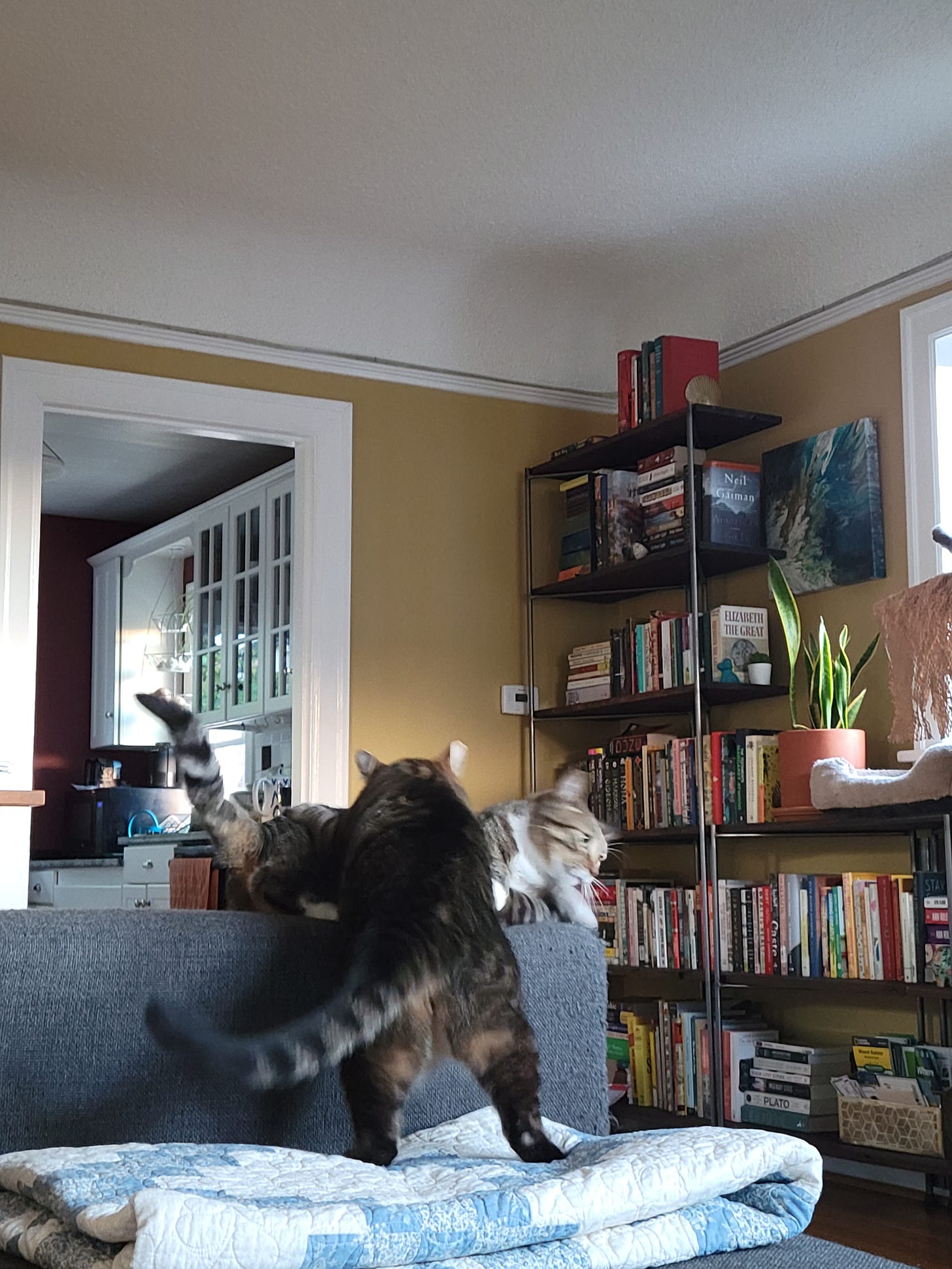"I love you, learn to love you"
thoughts on the value of higher education and haunting bathroom prose
I can’t stop thinking about this New York Times article by Paul Tough about how Americans’ perspective on college education soured substantially in the last decade.
First, a bit about my own college experience. I graduated high school in 2010: late enough in the Great Recession to feel incredible anxiety about securing a job post-graduation, but early enough to fail to benefit from the recovering job market. I turned down acceptances to more ‘prestigious’, desirable (for me, at the time) institutions, begrudgingly heeding advice from my parents and saying yes to a full ride at a commuter campus. Within a year, I saw the wisdom in that choice as my friends took on enormous student loans. Within three years, I decided I wanted to go to graduate school, and secured full funding to make that dream come true.
My story is a rare one. Though I tend towards exaggeration, I am not being facetious when I share that I am the only person I know, in my generation or younger, that completed an undergraduate AND a graduate degree with zero student loans. Some combination of privilege, eldest-daughter-overachieving-perfectionism, and luck got me there, and I often felt (and still feel) a bit undeserving. I couldn’t justify the unfairness, how I snuck by student loans and others could not.
I credit higher education (both the classroom itself and as a life experience) with helping me develop critical thinking and a deep appreciation for knowledge. It’s a big part of why I have the job I have today, whose perks include a good salary and healthcare and paid leave. But I really have to consider if my degrees are worth the average student loan debt of ~$30,000. I don’t even have that amount in savings today.
And today’s high school graduates can expect an average of $37,338 in federal student loan debt and $54,921 in private student loan debt. I really, really have to consider if they were worth that much.
So with all that in mind, it’s no wonder Tough’s words resonated, though this piece in particular astounded me:
"The percentage of young adults who said that a college degree is very important fell to 41 percent from 74 percent. Only about a third of Americans now say they have a lot of confidence in higher education.
From 74% in 2009, to 41% in 2023. ‘Statistically significant’ seems to be an understatement for that big of a jump, from college as a necessary lifeboat for weathering a bad economy, to ambivalence (if not outright rejection). Tough acknowledges the politics (e.g. campuses generally being seen as liberal/leftist) that contributed to this drop, but emphasizes what I also think is the main culprit - that’s so much fucking money. And the promise of a higher salary with a college degree doesn’t cancel out the cost. “Millennials with college degrees are earning a good bit more than those without, but they aren’t accumulating any more wealth” - because of “the rising expense of college and the student debt that often goes along with it.” Cool.
Then this:
Among young Americans in Generation Z, 45 percent say that a high school diploma is all you need today to “ensure financial security.” And in contrast to the college-focused parents of a decade ago, now almost half of American parents say they’d prefer that their children not enroll in a four-year college."
Are younger people seeing the scam for what it is, or are they scared of being ostracized for conservative values? Are their parents telling them this kind of debt is nearly impossible to dig out from, or are they scared of their children becoming Democrats? I don’t know - and the answer is probably “both, and it depends” - but this shift feels substantial, important, something worth all of our collective attention.
Higher education, and other seemingly entrenched institutional systems, do not have to be pay-to-play. Even with the enormous privilege of collegial financial aid, if I lost my job tomorrow, I would worry about covering expenses if unemployment lasted for more than 3 months. I don’t know how my friends and family members saddled with educational debt do it. It’s unfair. It’s a lot.
And it is a problem only those with lots of money can easily solve - for themselves, that is.
"For the nation’s more affluent families (and their children), the rules of the higher education game are clear, and the benefits are almost always worth the cost. For everyone else, the rules seem increasingly opaque, the benefits are increasingly uncertain and the thought of just giving up without playing seems more appealing all the time."
good things on the internet
Matt Baume, a fellow Seattlite, on the secrets, scandals, and Marilyn mystique of Some Like It Hot 💃
Get ready for spooks season with the best LGBTQ horror books 👻
My worst nightmare as someone who lives 0.5 miles from a high school - a panel of middle schoolers judging if you are cool 🕶️
currently reading
Braiding Sweetgrass by Robin Wall Kimmer: “Hold out your hands and let me lay upon them a sheaf of freshly picked sweetgrass, loose and flowing like newly washed hair. Golden green and glossy above, the stems are banded with purple and white where they meet the ground. Hold the bundle up to your nose. Find the fragrance of honeyed vanilla over the scent of the river water and black earth and you understand its scientific name: Hierochloe odorata, meaning the fragrant, holy grass. In our language it is called wiingaashk, the sweet-smelling hair of Mother Earth. Breathe it in and you start to remember things you didn’t know you had forgotten.”
This bathroom writing I saw in a Brooklyn park that I can’t stop thinking about:
this week’s jam
Shay Latukolan’s choreography UGHHH and the chorus harmonies wowwww. I have a feeling this will be my #1 Spotify song of 2023.






